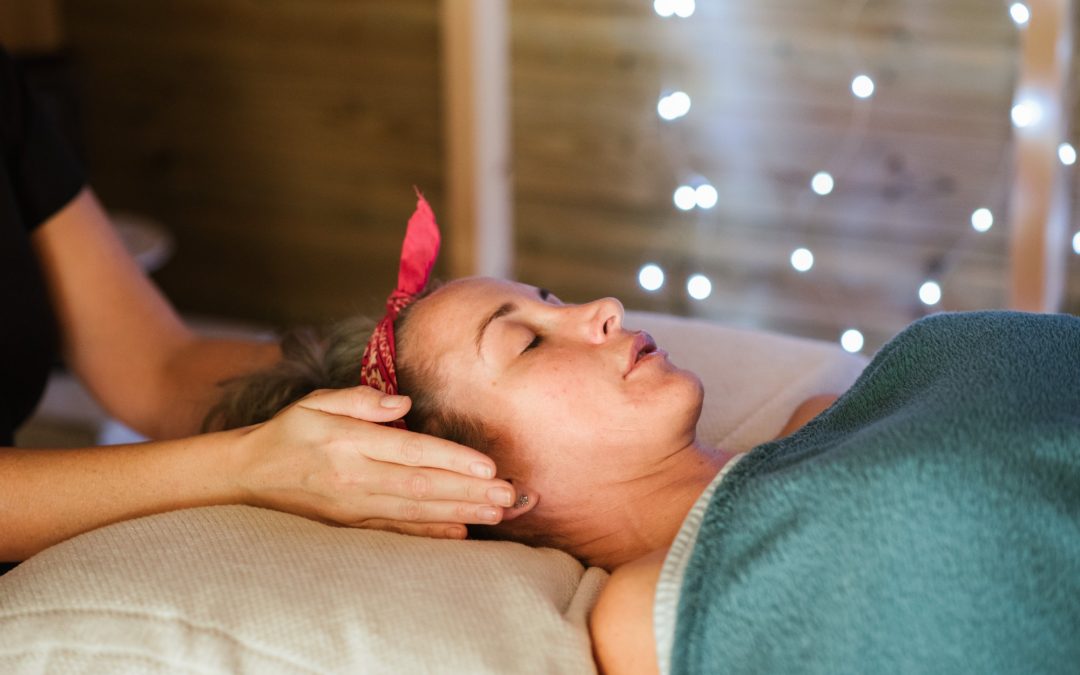While traditional therapy holds many benefits, holistic therapies are becoming increasingly popular for the treatment of mental health and addiction issues. Since addiction is experienced differently in every person, providers should offer various types of addiction treatment to suit individualized needs. One type of individualized, holistic treatment is called Reiki. Reiki is a kind of energy healing that can be categorized also as an alternative or complementary therapy. Reiki may aid in addiction recovery because it involves a transfer of energy directly to a client. This energy is said to restore the body’s natural healing abilities as well as aid in relaxation, fostering mindfulness.
What is Reiki?
Reiki is a health approach where practitioners direct energy from their hands to facilitate a client’s own healing response. The practitioners place their hands either lightly on a client’s body or just above their body. Reiki works with the energy around the body to support the body’s natural ability to heal itself. It involves the transfer of energy from the practitioner’s palms to the client.
Reiki began as a Japanese method of relaxation. The word “Reiki” comes from the Japanese words “rei”, universal, and “ki” meaning life energy. When an individual endures physical injury or emotional pain, energy is said to stagnate. In other words, pain causes the energy in the body to be still. When this occurs in different areas of the body, these stagnant energies can develop into illness.
Energy therapies aim to move these blockages by reconnecting the flow of energy in the body. Reiki is similar to other holistic therapies like acupuncture or acupressure. Practitioners believe in the Reiki practice because it is said to improve all flows of energy in and around the body. Proper energy flow enables relaxation, relieves pain, and can speed healing.
What Happens During a Reiki Session?
Reiki sessions typically involve a practitioner and client in a private and peaceful setting, although treatments can happen anywhere. Clients either sit or lay on a table. Practitioners will start to place their hands lightly over specific parts of the client’s body, especially places where there is injury or discomfort. They will keep their hands in specific positions from anywhere between three and ten minutes. Practitioners often report a warm and tingling feeling within their palms while the client feels a transfer of energy. Each position is held until these sensations are no longer powerful.
Unlike other energy treatments, Reiki relies completely on the use of the practitioner’s energy from their palms. Sessions may last 45-60 minutes. Depending on a client’s individual needs, the number of sessions may vary. While some clients may only need one session, other clients may require a series of sessions to work on a specific intention.
By restoring the body’s natural healing processes, Reiki also aids in the development of the health triad — one’s mental, physical, and spiritual well-being. Although Reiki is not reported to treat medical conditions, it may assist one’s healing alongside regular medical treatment. For example, if you are receiving treatment for a mental health or chronic medical condition, you may want to consider trying Reiki as aids in relaxation.
Reiki and Addiction Recovery
When an individual addresses their addiction, they are acknowledging their feelings of powerlessness over a specific substance or behavior. Reiki helps to restore this feeling of power through energy transference. As it aids in relaxation and helps to restore natural healing, Reiki may help soothe overwhelming feelings of anxiety, like other mindfulness practices intend to do. Some other benefits may include:
- Reducing feelings of nausea
- Calming the mind
- Managing pain
- Promoting relaxation
- Relieving emotional stress
For those that may be experiencing withdrawal or using substances for chronic pain, you may benefit from Reiki for pain management. Addiction can take its toll on the entire body, leading to chronic health issues like respiratory problems. Reiki may also be able to aid with these issues, as it is said to lower heart rate, blood pressure, and respiration. While addiction is often considered a mental challenge, these little improvements may be the initial steps needed to recover physically from long-term addiction.
While Reiki does not treat addiction, it holds numerous benefits that could aid in the body and mind’s natural healing properties. Reiki can foster a healthier mind-body connection that is the key to success with long-lasting addiction recovery. Mindfulness modalities play a vital role in emotional, physical, and spiritual well-being. It is important that we address the benefits of Reiki so individuals know that it is an available treatment. While it may not be an option for everyone, it may significantly benefit your addiction recovery process.
Reiki is a holistic treatment modality that works to restore energy flow within a client’s body. Practitioners use the energy from their palms and transfer their energy to a client that may be experiencing blockages of energy within the body. These blockages may relate to physical and/or mental illness. When it comes to addiction, a person experiences feelings of powerlessness over a substance and lacks the energy to surrender. Reiki treatments can restore this energy in the body that allows a client to feel relaxed, calm, and willing to recover. Reiki is recommended to use aside established medical treatment to provide relaxation and mindfulness. West Coast Recovery Centers acknowledges the need for mindfulness treatment options. We offer a range of traditional and holistic therapies available to you during your recovery process. We would love to aid you in your mental health treatment. For more information about the treatments we offer, Call West Coast Recovery Centers at (760) 492-6509.




